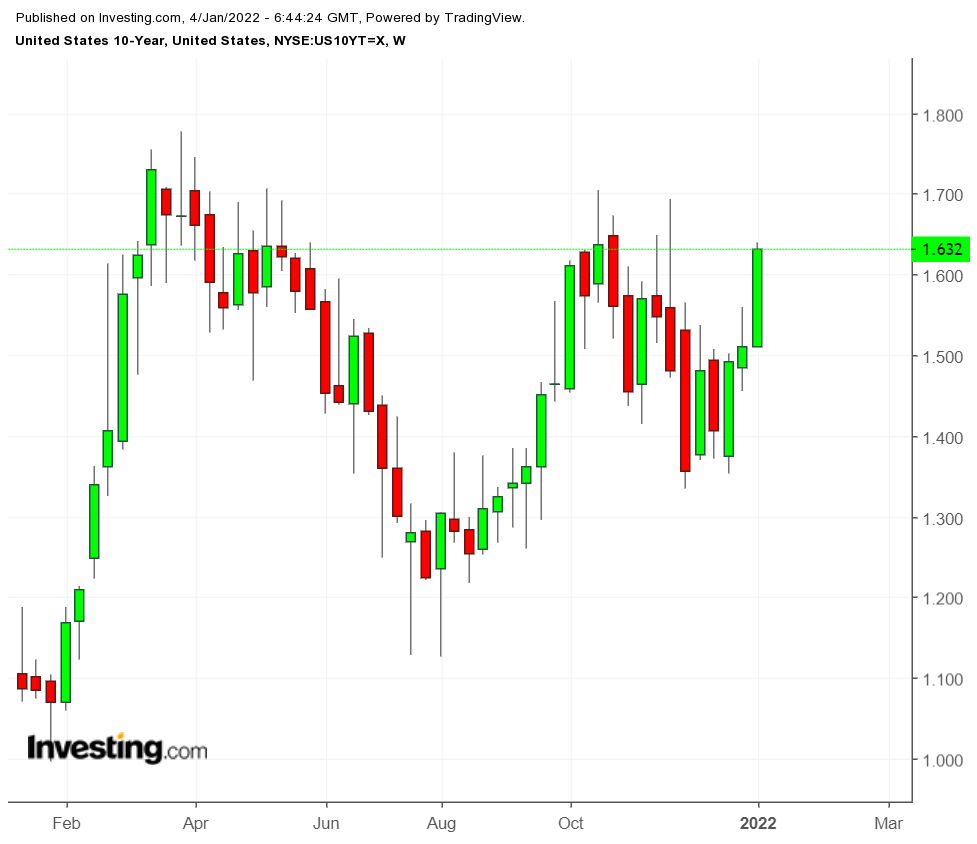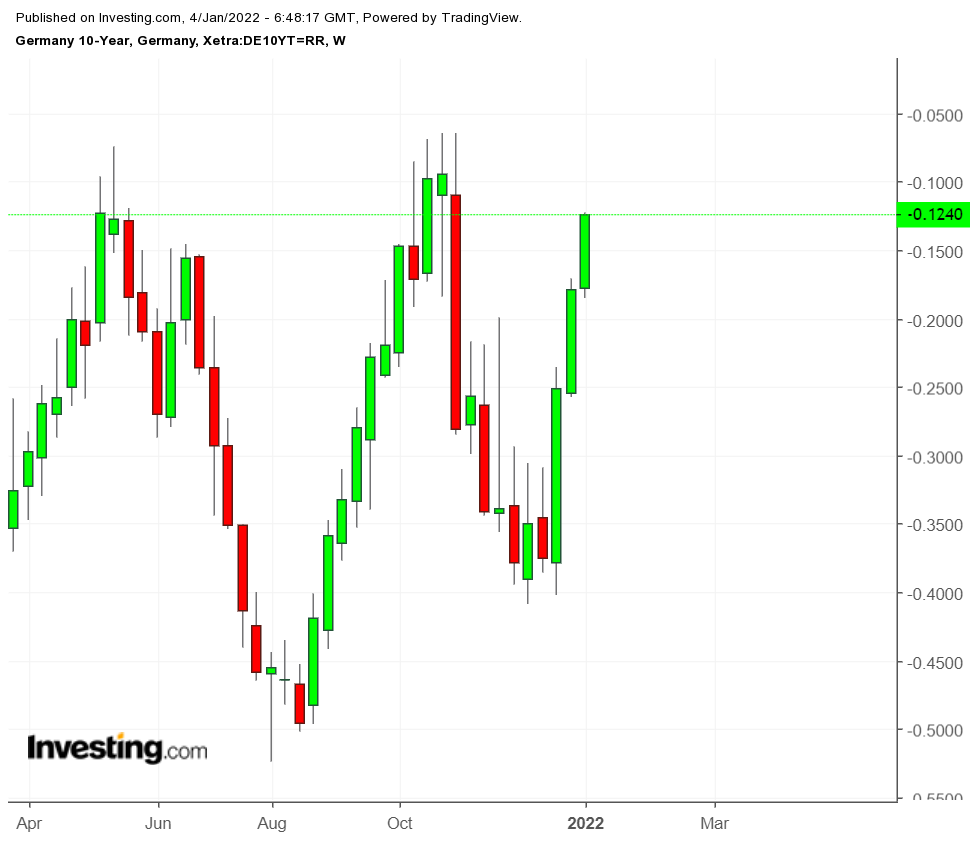On Monday, yield on the benchmark 10-year Treasury note plowed decisively through its recent 1.5% ceiling after edging above it on Friday, tacking on 13 basis points to above 1.63%.

Even as snow blanketed the Northeast, investors grew more optimistic on the first day of trading in 2022 as stocks and oil gained, and gold declined. The snow further snarled flights, already hit by COVID-induced absences, but investors shrugged this off to focus on a brighter economic outlook.
The CME’s FedWatch tool shifted to odds 54% in favor of the Federal Reserve’s first rate hike coming as soon as March. The odds were only 50% on Friday and as low as 26% in early December. Publication of the minutes from the mid-December policy meeting this week could provide some clues.
Central Bank's New Tightrope: Lowering Inflation Vs. Hiking Rates
The selloff of Treasuries on Monday came as investors concluded, at least for now, that the Omicron variant of COVID-19 is less severe as deaths have fallen 3% in the past two weeks even though the volume of infections has surged.
Europe set the pace on Monday, as stocks gained and bond prices fell, pushing up yields.

Yield on Germany's 10-year bond rose to minus 0.1225%, compared to minus 0.1800% in late Thursday trade (German financial markets were closed on Friday).
Some analysts are predicting that 2022 will be a more normal year, but that may be wishful thinking. The logic is that vaccines, boosters, and pills will tame COVID as the coronavirus itself mutates into less harmful versions, and that economic activity will surge amid pent-up demand. The presumption is that central banks will contain inflation.
That would all be nice, but the experience of the last two years affirms the old saw attributed to Mark Twain that predictions about the future are particularly difficult.
On the face of it, inflation is the wildcard, and even optimists seem reconciled to the price momentum continuing through 2022. The question is whether workers and consumers will start factoring inflation into their outlook, i.e., the inflations expectations would become unanchored.
The Federal Reserve and other central banks will be walking a tightrope to keep monetary policy loose enough to support growth but tight enough to rein in inflation.
Bond yields have been unnaturally low and economists consider the present situation of negative real interest rates to be unsustainable. But given the uncertainty of developments, few are hopeful that this situation will right itself in 2022.
Larry Hatheway and Alex Friedman, co-founders of think tank Jackson Hole Economics, play down the effect of inflation on markets. In an essay published Monday, they argue that fading base effects, robust supply responses, peaking growth in developed countries, and, yes, stable expectations will make inflation “yesterday’s story.”
As for bonds, they say, high inflation is already here and hasn’t really affected bond prices. Likewise, the tapering of central bank bond purchases and higher bond issuance from fiscal deficits are “known-knowns.”
Their conclusion:
“Yes, bond yields ought to move higher in 2022, but the pace is likely to be gradual. Moderate global growth, receding inflation, the end of fiscal expansion, and tepid monetary policy tightening is apt to produce somewhat higher yields, but also a flatter yield curve.”
Flattening yield curves often indicate investor uncertainty about the economic outlook, and that may become the hallmark of the New Year.
